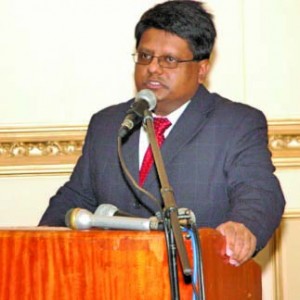Related posts
-

APNU/AFC, GECOM expose Guyana to sanctions – PPP
The Opposition People’s Progressive Party/Civic (PPP/C) has stated that the APNU/AFC coalition’s latest delay tactic in... -

President Trump urges FDA to consider Chloroquine to treat COVID-19
…Guyana’s NEW GPC ramps up production One day after the NEW GPC announced that it was... -

US sends strong warning to persons involved in electoral fraud in Guyana
The Government of the United States of America (USA), in its starkest warning to Guyana to...

